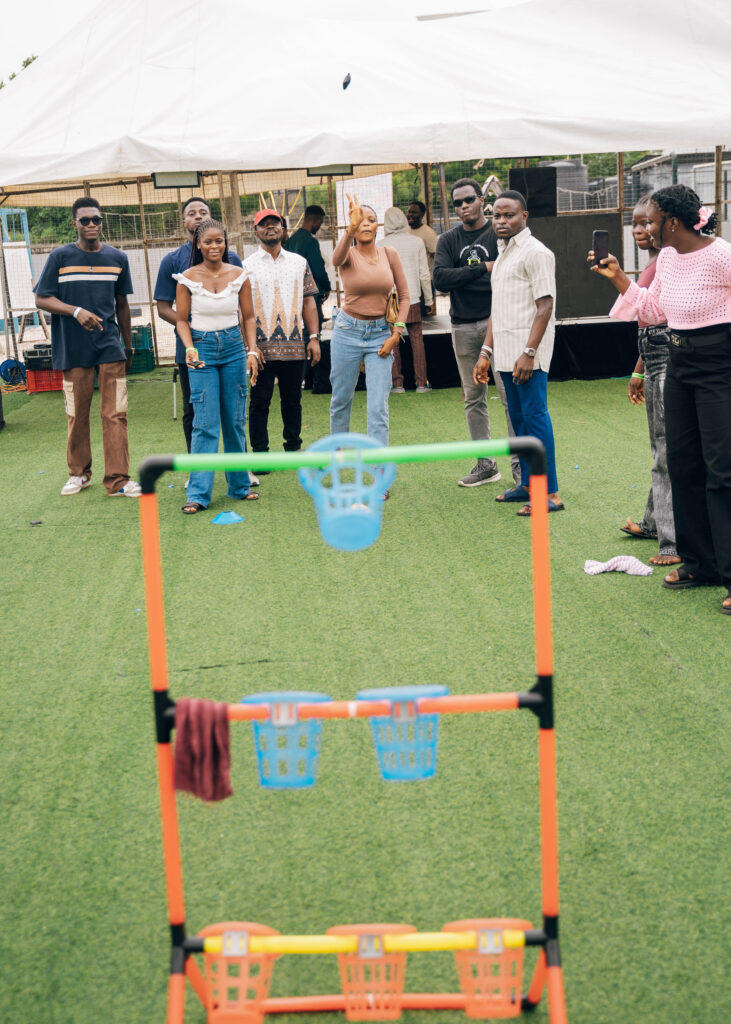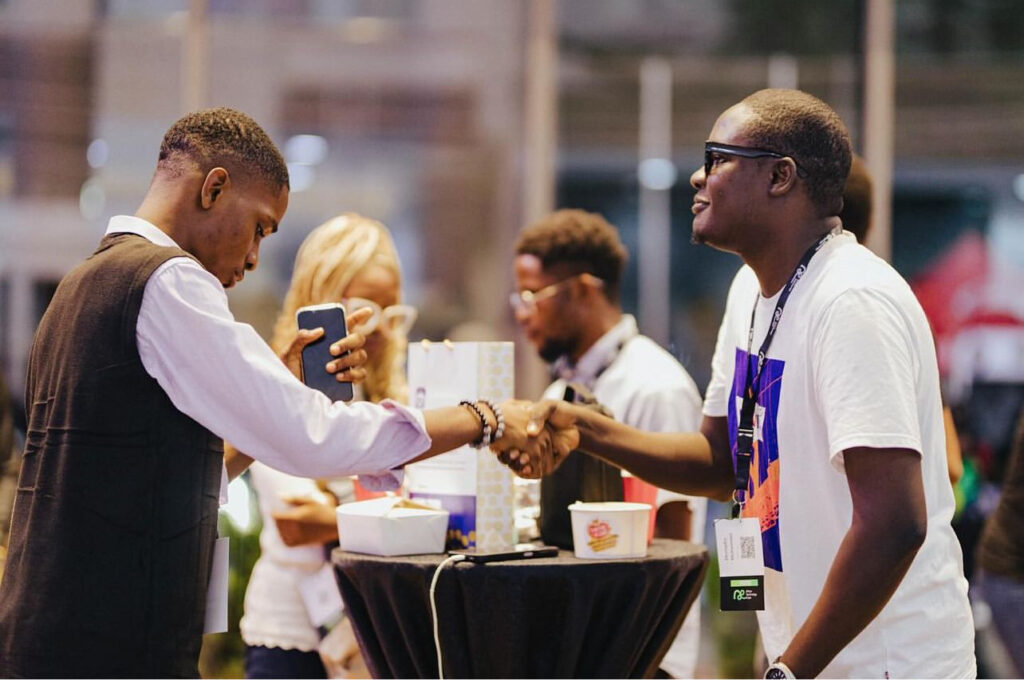
Why Team Bonding Doesn’t Work in Most Nigerian Companies.
Related post


Walk into a Nigerian company after a so-called “team bonding” day, and ask how it went.
You’ll hear responses like
“It was okay, sha… nothing serious.”
“We just did a trust fall and played musical chairs.”
Now read that again. If those are the reviews from the people it’s meant to energize, then something is broken.
So let’s ask the real question: Why doesn’t team bonding work in most Nigerian companies?
In this post, we’ll talk about the real issues behind failed bonding experiences, cultural context unique to Nigerian workspaces, what team bonding should actually feel like and how companies like YellowLyfe help fix the problem without stress.
Real issues behind failed team-bonding experiences
-
Team Bonding Isn’t Just an Event
Let’s start with the biggest misconception:
Most Nigerian companies treat team bonding like an event.
Something you do once in a while, usually because HR remembered the budget is still untouched.
A single “fun day” is planned (usually hurriedly), there’s no real build-up, the activities feel awkward, and it ends up being more “photo op” than team bonding.
Why this doesn’t work:
-
Team bonding is emotional, not procedural
-
Culture isn’t built in a day—it’s reinforced constantly
-
You don’t “bond” by force; people connect through shared experience and trust, which takes time
What to do instead:
Create smaller but consistent moments of connection throughout the year. Think monthly low-pressure activities, team inside jokes, rituals, and surprise appreciation days.
2. Nigerian Work Culture Can Be Too Hierarchical for Bonding
In many Nigerian companies, the office still feels like a traditional family compound.
The boss is like a king; the manager is the enforcer, and everyone else is either quiet or pretending.
In that kind of environment, people are too guarded to bond authentically. You can’t expect junior staff to “speak their truth” during bonding games when they know their line manager is watching with their mouth tight.
Why this doesn’t work:
-
Fear of judgment or “oversabi”
-
People perform instead of connect
-
Hierarchy makes vulnerability difficult
What to do instead:
Create neutral spaces where rank is suspended—not for disrespect, but for relatability.
YellowLyfe designs team-bonding sessions where everyone is human first. No one is trying to impress, just connect.
3. Team-bonding activities are often outdated and forced.
The truth is, most “team bonding” activities Nigerian companies use were borrowed from foreign playbooks—without considering our unique culture.
Let’s talk examples:
-
Trust falls in a Lagos tech office are awkward.
-
Icebreakers that involve “sharing your darkest fear” are cringe.
-
Passing a balloon between your knees in front of your MD? No.
The result? Staff show up, participate mechanically, take selfies, and leave unchanged.
Why this doesn’t work:
-
Activities feel fake or awkward
-
People are disengaged and just counting down to closing
-
No one remembers what the point was
What to do instead:
Use Nigerian-relevant games, storytelling, banter-driven challenges, and music-based activities that reflect local energy.
YellowLyfe has culturally aligned games that balance fun and connection and they actually work.
4. Bonding Is Often Done Just to Tick a Box
The “HR must show report” mentality is real.
Sometimes team bonding is done because HR included it in their KPIs or management said, “Let them relax a little,” or because another company just posted bonding pics online
But if the motive isn’t genuine, the result won’t be either.
Why this doesn’t work:
-
Staff can tell when bonding is performative
-
It feels more like a photoshoot than a people-first experience
-
No one is emotionally invested
What to do instead:
Before planning bonding activities, ask your team members what they actually enjoy.
Use surveys or short polls to get ideas. YellowLyfe helps HR teams plan intentional team-bonding programs that solve culture problems, not just decorate your Instagram.
5. Lack of Follow-Up = Zero Impact
Even when bonding days go well, most Nigerian companies make one fatal mistake: they never follow up.
No post-activity reflection. No discussion on what was learned. No feedback form. No memory was triggered after that day.
So the impact fades fast.
Why this doesn’t work:
-
No reinforcement equates to no retention
-
Staff don’t see a link between bonding and daily culture
-
It becomes a “once-and-done” memory
What to do instead:
YellowLyfe always includes post-event reflection tools like mood boards, team check-ins, culture calendars, and highlight reels for internal sharing
This way, one bonding moment becomes part of something bigger.
6. Not Everyone Is Considered in the Planning
Here’s a mistake we don’t talk about enough: planning bonding days for “extroverts only.”
Some team members don’t want to dance, don’t like crowds, are neurodivergent, are introverted or reserved
And that’s okay. But when all bonding activities require energy, noise, and group pressure, they quietly feel left out.
Why this doesn’t work:
-
Exclusion kills connection
-
People feel judged for not “vibing.”
-
Your team bonding becomes divisive
What to do instead:
Design inclusive bonding activities that cater to diverse personalities.
YellowLyfe uses personality-based planning—so there’s something for the loud and the low-key.
7. Bonding is seen as a waste of time or money
“We’re here to work, not to play.”
“We can’t spend money on vibes when targets are pending.”
“We have bills to pay, not to laugh.”
Sound familiar?
This thinking is one of the top reasons why team bonding doesn’t work in Nigerian companies.
Why this doesn’t work:
-
It creates guilt around joy
-
Reduces culture to a luxury instead of a tool
-
Misses the fact that connection equates productivity
FAQs About Team Bonding in Nigeria
What’s the best frequency for team bonding activities?
Once a quarter is a good rhythm for big experiences. But small touchpoints (monthly bonding days, celebration surprises, or even themed Fridays) help culture stick better.
Does remote or hybrid work make bonding harder?
Yes, but not impossible. YellowLyfe designs bonding kits, virtual games, and remote team rituals that bring people together across distances.
What’s the ideal team bonding budget in Nigeria?
You can start as low as ₦15,000 per person and scale up depending on the activity. The goal is impact, not extravagance.
So… What Should Team Bonding Actually Feel Like?
- Safe
- Warm
- Unforced
- Personal
- Fun
- Memorable
- Connected to your brand culture
Bonding That Actually Works
The truth is simple:
Team bonding doesn’t work in most Nigerian companies because it’s done without intention. It’s rushed, performative, disconnected from reality, and worst of all, it becomes something staff endure, not enjoy.
But when done right, team bonding:
-
Makes people feel human again
-
Sparks trust in the workplace
-
Makes “work family” more than a buzzword
-
Turns ordinary teams into culture-driven ones.
If your team bonding day ends in silence, we need to talk.
Let YellowLyfe help you fix the fake vibes and build a culture that actually sticks.
Book a free bonding strategy session today—or slide into our DMs for the soft approach 😎


